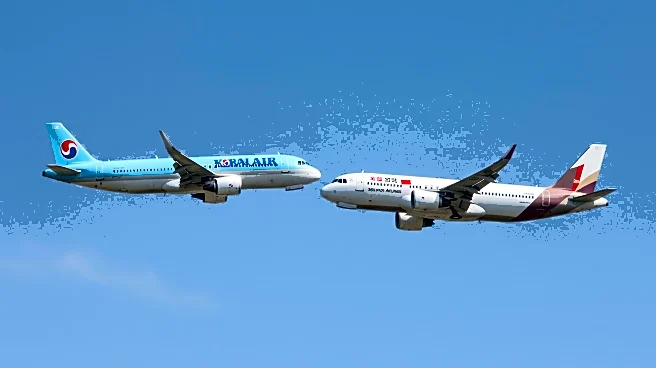What's Happening?
Korean Air has received regulatory clearance to merge with Asiana Airlines, creating a single carrier that will operate under separate AOCs for two years before fully integrating. The merger, announced in 2020, aims to stabilize South Korea's aviation sector and enhance global competitiveness. The integration process includes harmonizing operations and aligning service standards, with a focus on adopting best practices from both airlines. Korean Air plans to increase its proportion of international passengers and expand foreign cabin crew hiring. A major cabin retrofit program is underway, adding premium economy cabins to Boeing 777-300ERs.
Why It's Important?
The merger of Korean Air and Asiana Airlines is significant for the aviation industry in Northeast Asia, potentially reshaping the competitive landscape and positioning Korean Air among the world's top 10 airline groups. The integration aims to enhance service quality and operational efficiency, benefiting passengers and stakeholders. The expansion of international passenger services and foreign crew hiring reflects Korean Air's global ambitions, which could lead to increased market share and influence in the aviation sector.
What's Next?
Korean Air and Asiana Airlines will continue discussions to harmonize operations and service standards. The integration process will focus on adopting best practices and enhancing service quality. The cabin retrofit program will expand premium offerings, catering to short- and medium-haul destinations. Korean Air's global expansion plans include increasing international passenger services and foreign crew hiring, which could lead to further growth and competitiveness in the aviation industry.











